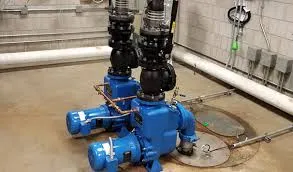Persian
- Afrikaans
- Albanian
- Amharic
- Arabic
- Armenian
- Azerbaijani
- Basque
- Belarusian
- Bengali
- Bosnian
- Bulgarian
- Catalan
- Cebuano
- Corsican
- Croatian
- Czech
- Danish
- Dutch
- English
- Esperanto
- Estonian
- Finnish
- French
- Frisian
- Galician
- Georgian
- German
- Greek
- Gujarati
- Haitian Creole
- hausa
- hawaiian
- Hebrew
- Hindi
- Miao
- Hungarian
- Icelandic
- igbo
- Indonesian
- irish
- Italian
- Japanese
- Javanese
- Kannada
- kazakh
- Khmer
- Rwandese
- Korean
- Kurdish
- Kyrgyz
- Lao
- Latin
- Latvian
- Lithuanian
- Luxembourgish
- Macedonian
- Malgashi
- Malay
- Malayalam
- Maltese
- Maori
- Marathi
- Mongolian
- Myanmar
- Nepali
- Norwegian
- Norwegian
- Occitan
- Pashto
- Persian
- Polish
- Portuguese
- Punjabi
- Romanian
- Russian
- Samoan
- Scottish Gaelic
- Serbian
- Sesotho
- Shona
- Sindhi
- Sinhala
- Slovak
- Slovenian
- Somali
- Spanish
- Sundanese
- Swahili
- Swedish
- Tagalog
- Tajik
- Tamil
- Tatar
- Telugu
- Thai
- Turkish
- Turkmen
- Ukrainian
- Urdu
- Uighur
- Uzbek
- Vietnamese
- Welsh
- Bantu
- Yiddish
- Yoruba
- Zulu
Telephone: +86 13120555503
Email: frank@cypump.com
نوامبر . 29, 2024 19:11 Back to list
Understanding the Functionality of a Septic Ejector System for Wastewater Management
Understanding Septic Ejector Systems
Septic systems are a common method for waste management in areas not connected to municipal sewer lines. Among the various components of a septic system, the septic ejector system plays a crucial role, particularly in managing the flow of wastewater from lower-lying areas. This article explores the function, importance, and maintenance of septic ejector systems.
A septic ejector system is designed to transport wastewater from the septic tank to the drain field when gravity alone cannot facilitate the movement. This situation typically arises in properties with basements or those located at a lower elevation compared to the drain field. The ejector pump, which is the heart of the system, operates automatically to ensure that wastewater is efficiently lifted and discharged.
The components of a typical septic ejector system include an ejector pump, a basin or vault where wastewater collects, and a series of pipes leading to the drainage area. When the water level in the basin reaches a specific height, the pump activates, pushing the wastewater upward through the discharge pipes. This process helps maintain the efficiency of the septic system and prevents the risk of backups and overflows.
septic ejector system

One crucial aspect of septic ejector systems is their maintenance. Regular inspection and servicing are essential to ensure that the pump operates effectively. Homeowners should look out for warning signs such as unusual noises from the pump, slow drainage, or unpleasant odors, as these may indicate a malfunction. Ensuring that the basin is free from debris and that the pump operates smoothly will prolong the lifespan of the system and prevent costly repairs.
In addition, it is important to be mindful of what goes down the drains. Non-biodegradable materials, chemicals, and excessive fats can harm the ejector pump and the overall septic system. Educating all household members about proper waste disposal habits can significantly enhance the reliability and longevity of the system.
In summary, septic ejector systems are vital for effective waste management in specific residential setups. By understanding their function and committing to regular maintenance, homeowners can avoid potential issues and ensure their septic system operates smoothly. Proper care allows for a sustainable and efficient waste disposal process, contributing positively to the environment and public health. Regular inspection and mindful usage are key to a healthy septic system, ensuring peace of mind for homeowners.
-
Custom Drilling Mud and Slurry Pump Supplier - High Efficiency, Tailored Solutions
NewsJun.10,2025
-
Supply Vertical Submersible Sewage Pump High-Efficiency WQ/QW Pumps Supplier
NewsJun.10,2025
-
Premium Sewage Ejection System & Pumps Efficient Waste Removal
NewsJun.09,2025
-
Premium Wholesale Slurry Pump Impellers Durable & Efficient Slurry Handling
NewsJun.09,2025
-
Top Sewage Pump Companies Durable Industrial Solutions for Efficiency
NewsJun.09,2025
-
Heavy Duty Slurry Pumps - OEM High Performance & Bulk Wholesale
NewsJun.09,2025










